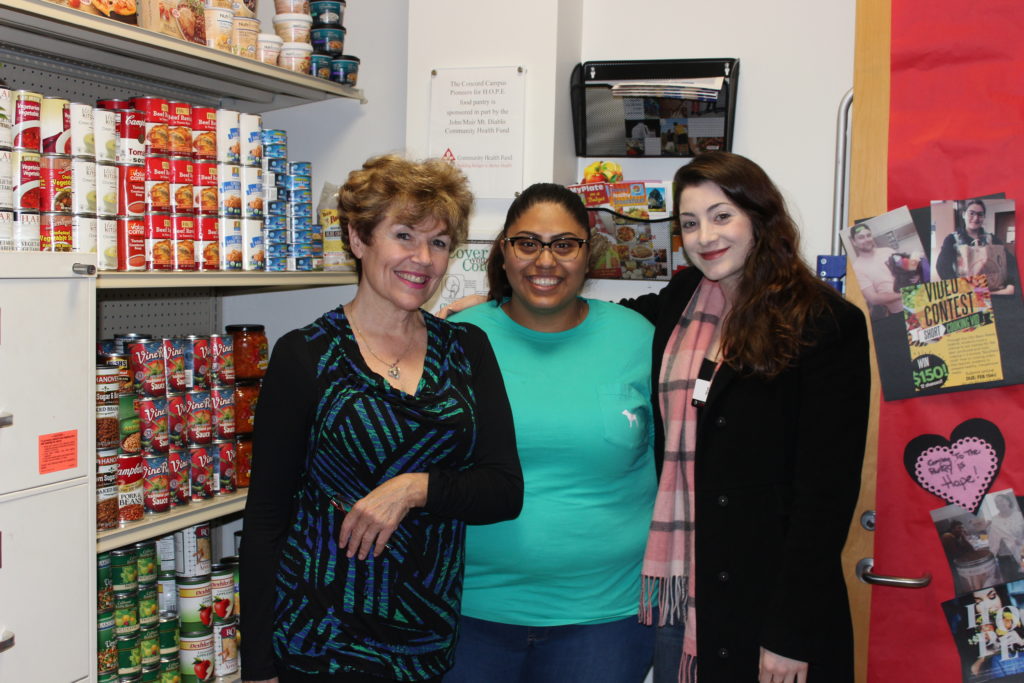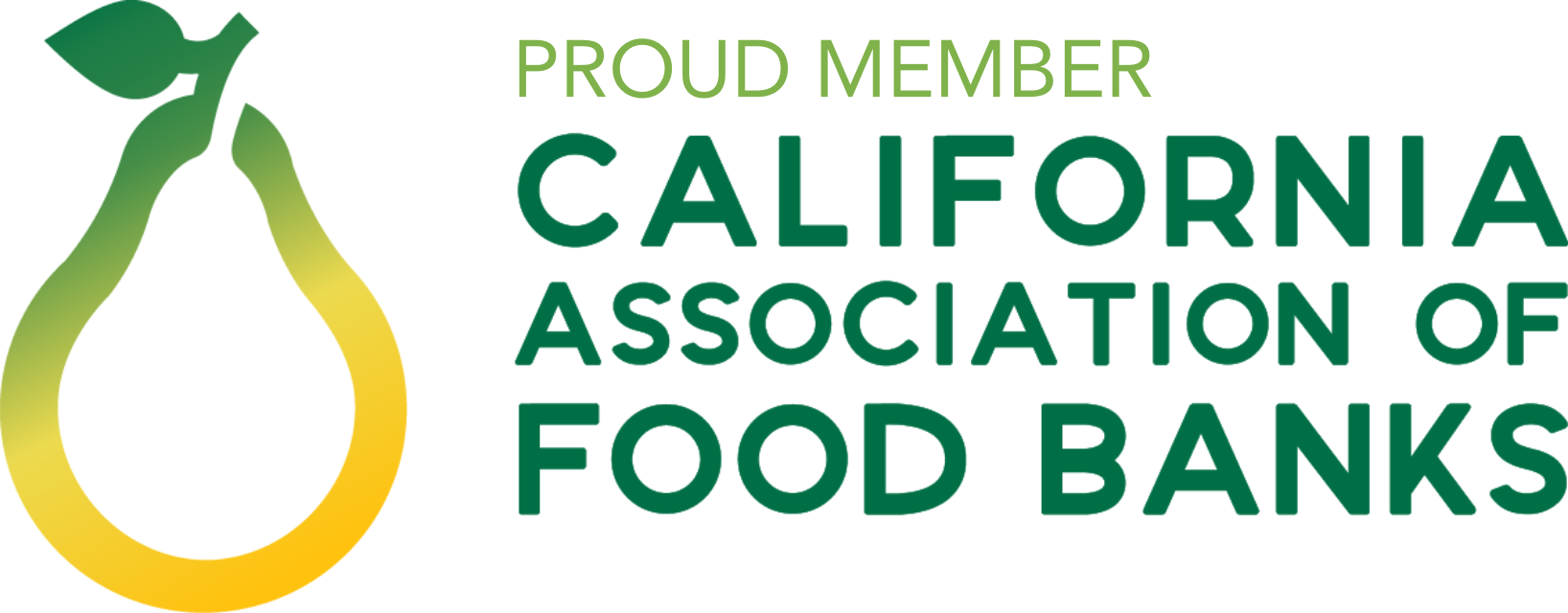You can’t learn when you are hungry, which is why we have programs that specifically focus on providing food for school-aged children. But what about the people seeking higher education? Almost half of local college students struggle to afford food due to the increasing costs of housing, tuition, and books. The Food Bank partners with local colleges to help combat this nationwide problem through our College Pantry Program.
Last month we started new partnerships with St. Mary’s College and CSU Maritime Academy. We are happy to be able to help serve the students at these new pantries as well as at existing pantries on the campuses of CSU East Bay-Concord, Diablo Valley College, Los Medanos College and Contra Costa College.
Each college pantry operates with a staff member and many generous student volunteers. Most are open 5-days a week and enrolled students with a school ID can pick up free groceries at these little mini-markets. Students are able to pick out what food they want according to their personal dietary restrictions or food preferences.
Shelf-stable foods available include pasta, fruits, vegetables, soups, beans, and rice. The pantries that have refrigeration are able to offer eggs, milk and juice. A couple of the pantries have freezers, so they are able to distribute meat as well.
Each pantry is in charge of spreading the word on their campus. In addition to traditional flyers and newsletters, they often reach out to the masses via social media. Sometimes pantry representatives will speak directly to the students at the beginning of classes to ensure everyone knows about help is available.
Antoinette whose work-study job is at the food pantry on the CSU East Bay-Concord campus tells her fellow students, “Don’t feel ashamed to come in, we don’t want you to be hungry. Some students have whispered to me, ‘I have been hungry’–they always say it in a whisper.”
James Lande, the Food Bank’s College Pantry Coordinator, provides ongoing support to all the college pantries from daily operations and marketing to outreach and grant writing. In turn, these pantries are better able to serve students in need. James shares, “Pantry Coordinators tell me since starting a pantry on campus and working with the Food Bank, they have been able to greatly expand their presence on campus and improve the variety and nutritional options available. All of the college pantry partners have expanded their hours since opening.”
A recent Government Accountability Office report revealed the extent of college hunger, and schools have not only stepped up by opening pantries on campus, but they also welcome help promoting agencies and outside programs that can benefit their students. To aid with this effort, the Food Bank works with campuses and students to educate them on CalFresh. Many students don’t realize they qualify for this government assistance. A Community Relations Officer at Cal State East Bay explains it to students like this, “You get financial aid, now let’s get your food aid.” We also connect colleges in Contra Costa County with Contra Costa Health Services. They support the colleges by providing nutrition education materials and have even done cooking demonstrations on a few of the campuses.
We are inspired by these colleges who are not only discussing the issue of student hunger but are taking action as well. We will continue to expand this program to other campuses and we are even looking into partnering with local adult schools. We are committed to being there for those who are pursuing their education today, so they can better provide for themselves and their families tomorrow.




